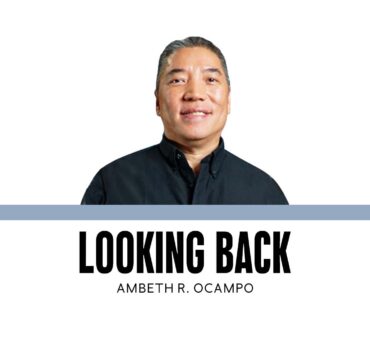When plastic treaty fails, can citizens fill the gap?

Geneva, Switzerland—After 10 days of the sixth round of negotiations for a plastics treaty, the United Nations Environment Program’s Intergovernmental Negotiating Committee (UNEP INC) 5.2 meeting yet again failed to agree to have a global plastics treaty.
Halfway through INC 5.2, there were already whispers that they cannot meet the deadline and a possible INC 5.3 is in the offing. In fact, when INC chair Luis Valdivieso convened a plenary on Aug. 9 (Day 5), the text still has 1480+ brackets (meaning not final, yet to be agreed upon). The subsequent week showed the INC chair lessening the number of contact groups which were open to observers and holding more regional consultations and informal meetings (closed-door meetings among negotiators and member state delegations).
During the second week, the INC chair offered two texts that tried to reconcile the differences between like-minded groups and the high-ambition countries. Yet, the two iterations of the chair’s text were met with rejection underscoring a deep divide between factions among member states.
On one hand, there is the High Ambition Coalition (HAC+) composed of more than a hundred countries that want a treaty that caps plastic production and chemicals of concern. It is led by Rwanda and Norway and includes African countries, the European Union, a handful of countries in Asia and America.
On the other side of the fence is the minority which call themselves the Like-Minded Group. Analysts put these countries as Saudi Arabia, India, Iran, Iraq, Russia, Malaysia, Cuba, etc. These countries have continuously opposed mandatory caps on plastic production and push for a treaty that addresses plastics only at the disposal stage. Various stakeholders in particular civil society groups, indigenous peoples’ groups, youth, and the Scientists Coalition for an Effective Plastics Treaty have expressed dismay on the outcome of INC 5.2. For them, “no treaty is better than a weak treaty!” effectively sending a message to HAC countries to persist and continue pushing for a treaty that reduces plastic production, bans hazardous chemicals, and provides financial mechanisms to least developed countries especially small islands and developing states.
In light of the failed outcome of this extended round of negotiations, there seems to be a gravitation to rethink multilateralism and multistakeholderism in the whole UN process. Scholars like Ralston and Taggart, Manahan have respectively critiqued the UN’s multistakeholderism processes. In particular, these processes legitimize weak regulations and voluntary mechanisms instead of addressing root causes of the problem. These also perpetuate market-based norms further enabling “false solutions” to issues like climate change and plastic pollution.
A question needs to be asked now: can ordinary citizens and grassroots communities through deliberative citizen assemblies fill the gap? Can deliberation instead of a negotiation process made up of ordinary citizens (not government ministers, diplomats, etc.) deciding on key environmental issues give us something tangible? I am sure citizen assemblies can come up with more concrete agreements. These can be good compliments to these UN processes. The experience that I had as one of the 20 facilitators during the Global Assembly in 2021 that produced a text titled “People’s Declaration for the Sustainable Future of Planet Earth” showed that 100 ordinary citizens from all over the world, who were selected through sortition, could come up with something concrete in time for COP26 in Glasgow that year.
We don’t need to reinvent the wheel. As deliberative democracy scholars in the Philippines have argued before, deliberative forms and practices in the Philippines are nothing new. We already have town hall meetings, barangay assemblies, people’s empowerment and development councils in cities like Naga and Dumaguete. “Pulong-pulong” or informal community gatherings in the Philippines (similar to what other locally rooted practices countries in Southeast Asia have) can be harnessed to scale the practice of deliberation among communities. In other parts of the world like Europe, citizens were able to come up with local concrete policies on different issues that were borne out of deliberative citizen assemblies.
Plastic pollution is a transboundary issue so while citizen assemblies can work at the local level, we still need to solve it on a global level. I do hope that the UNEP INC next year will finally be able to come up with an ambitious and legally binding global plastics treaty that addresses plastics in its full lifecycle.
—————-
Jed Alegado is a Ph.D. candidate at The Australian National University. Prior to his doctoral studies, he has worked with environmental movements in the Asia Pacific region. He also teaches undergraduate and postgraduate students in the Philippines and Australia.

















A mindset for public service